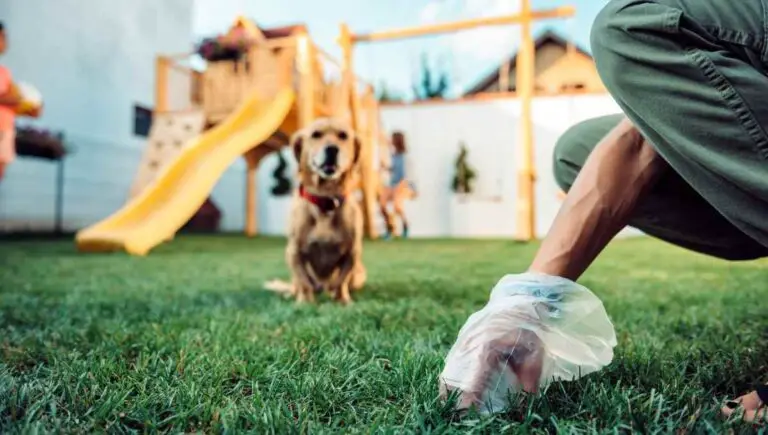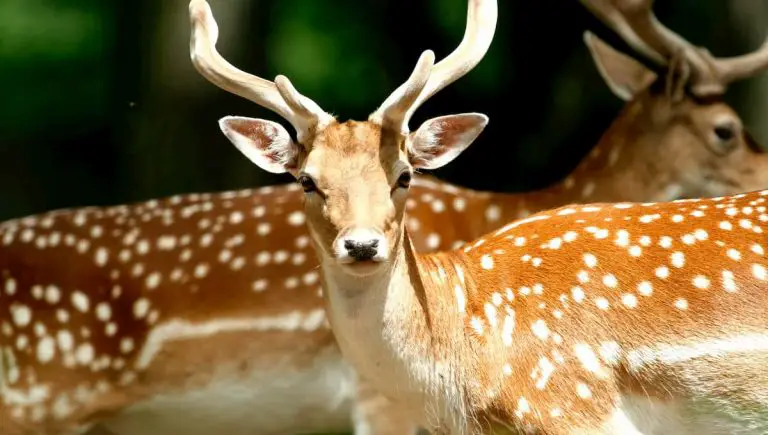My Dog Ate a Dead Snake in My Yard: What Should I Do?

My dog ate a dead snake in the yard, what should I do?! The first thing you should do is stay calm and don’t panic. Dogs almost always get into a lot of trouble or eat things they probably shouldn’t. Sometimes they might even bring you nasty surprises like a dead animal they just found. What if it’s something as potentially dangerous as a snake though? Will your dog be okay?
If you find out that your dog has eaten a dead snake, contact your vet immediately and report what happened. Make sure to provide as many details as possible. If you’ve observed your dog vomiting, then you should take him to the vet clinic immediately.
A dog stumbling upon a dead snake and eating part of it is quite common. Some dogs might get sick while others will be totally fine. Still, it pays to be prepared should your dog have a bad reaction from eating a dead snake.
This article will explain what usually happens if a dog eats a dead snake and what you can do if your dog shows a serious reaction.
This post contains affiliate links. This means Yard Blogger may earn a commission should you make a purchase using any of our links. Please refer to our full affiliate disclosure policy for full details.
Here’s a Quick Pro Tip!
One great way to prevent your dog from getting the chance to eat dead animals while on walks is using something like the TUG 360° Tangle-Free, Heavy Duty Retractable Dog Leash to keep them away from dangerous things.
Alternatively, another safe option would be the Gentle Muzzle Guard for Dogs which won’t allow them to eat dead animals. You can pick up both of these over at Amazon.
What Happens If A Dog Eats A Dead Snake?
It’s easy to be concerned if your dog eats a dead animal – all the more if it’s a snake. The thing about snakes (venomous species in particular), is that when they are dead, they usually can no longer bite and inject their venom. However, it is still potentially risky for your beloved dog especially when it has a snake head in his or her mouth.
Who knew what happened to your dog while it was eating or grabbing the dead snake in his/her mouth? The most important thing to note is that a snake, specifically the highly venomous rattlesnake, can still be considered dangerous long after its dead.
When talking about what happens if a dog eats a dead snake, there are two possible outcomes: getting sick or death.
Can Dogs Get Sick From Eating Snakes?
Non-venomous snakes may not be as life-threatening as the venomous ones but they can still cause health problems for your dogs. Depending on the species of snake, your dog could experience vomiting and drooling.
Many dog owners, however, report that dogs will be just fine when they eat dead snakes. There will be mild reactions but the dog won’t be in serious harm. For venomous snakes, most of the venom is found on the head where the sac is and it will become a real concern only when it’s injected into the blood.
An encounter with garter snakes, which is common for dogs, might be a different story (we will discuss more of this further below). For this reason, it’s important to contact your veterinarian and provide as much information as you can about the snake encounter.
Can A Dog Die From Eating A Snake?
It is possible for a dog to die from eating a snake. It can be from an injected venom, from eating a venomous snake’s head or it could be that the snake was poisoned by pesticides. Let’s elaborate further.
A severed snake head, particularly the venomous species, still has reflex and is capable of injecting venom to a victim. It is said that a dying snake is far more dangerous since it delivers high concentrations of venom in one go.
Not only is this is a possible scenario, but it’s actually pretty common. In fact, this exact thing happened to a Texas man in 2018, where he was bitten by a severed snake head. That makes it potentially dangerous for a dog who’s curious and likes to play with dead snakes.
It’s also possible that a dog might die from eating snakes if the dog eats the severed head of a dead venomous snake. This has happened before, according to an online story regarding a dog eating a snake that had been long dead.
According to the individual, the dog wasn’t bitten by the snake but only found the reptile dead the next day. The dog ate the snake’s head (where all the venom was) and soon enough, it started showing signs such as strange behavior and coughing up blood. Unfortunately, the dog wasn’t saved despite the anti-venom treatment.
Your dog could also die from eating snakes when the snake itself was poisoned. Some farm owners use pesticides to control snakes that invade their livestock. If your dog found and ate a dead snake killed by the poison, your dog could also ingest the poison that will make him sick and possibly kill him.
Whether your dog ate a venomous or non-venomous snake, you may still need to be cautious and observe any signs that he or she is having a serious reaction.
Are Dogs Immune To Snake Venom?
You might see that your dog is playing with a snake or try to attack it, but remember that a dog is never immune to a snake venom. In fact, it can be fatal for your buddy. Dogs are naturally curious so they will get close to whatever they see is interesting and find out more about it.
As a result, they could get bitten in the nose or anywhere in the face. It’s a good thing if the snake that bit your dog is non-venomous. But the same thing cannot be said of a venomous snake. If your dog’s curiosity keeps on worrying you, here are some tips on how to keep him safe:
- Snakes, being cold-blooded, like to hide on the ground for moisture and to keep themselves warm. They also hide to ambush their prey. They like to hide under piles of rocks, leaves, or sticks or any junk. That said, help your dog avoid such areas.
- Many snakes can even climb walls to catch prey or strike so it’s important to be aware of this as well.
- Snake bites usually occur in spring, summer, or fall or when the temperature is cool. In the summertime, always make sure to keep your pooch on a leash after dark or before sunrise to prevent him from roaming around areas where snakes would likely stay to keep cool.
- Have your dog trained to avoid smells associated with a snake. Find a training course that helps dogs avoid dangerous snakes.
Are Garter Snakes Toxic To Dogs?
Dogs love to explore and go on an adventure and end up finding a snake. Most snakes don’t want to have to do anything with your dog. Some, however, may feel threatened, making them strike at your pet.
Garter snakes are among the most common snakes dogs encounter. But despite being generally harmless, they can make your dog sick.
According to an expert, garter snakes were once thought to be non-venomous but they do produce a mild venom. This venom helps to stun small prey so they become easy meals. A garter snake’s bite, therefore, doesn’t harm humans as well as larger mammals like your dog.
Still, it is best to know what to do just in case your dog reacts negatively to a garter snake bite. If your dog playfully had the snake in his mouth, don’t be surprised if he has reactions such as drooling, gagging, and salivating.
Garter snakes emit a musky odor when threatened and it’s naturally part of their defense mechanism. When your dog eats the snake, the mild symptoms are likely from a reaction from that smell. That should also serve as a painful lesson for him/her. If you are concerned, it’s always best to bring your dog to the vet.
My Dog Ate A Dead Garter Snake
So you realized that your dog ate a garter snake. Now what? Dogs who have had an encounter with a garter snake will usually be fine afterwards. However, some may have it worse than others.
If you knew that your dog ate a garter snake, observe him or her after the encounter. If he isn’t reacting strangely, then there is no need to worry. However, if you observe gagging and salivating or you see your dog’s harsher reactions, it’s best to call your vet just so you can have that peace of mind.
My Puppy Ate A Dead Snake
A puppy eating a snake can be a real concern. After all, a puppy is fragile and you’ll never know what reaction it might have to eating a snake. What’s worse is not knowing what kind of snake your puppy has.
As with the advice shared above, it’s best to monitor your little pup for any signs of a reaction.
Conclusion: What To Do If My Dog Ate A Dead Snake
Finding out that your dog ate a dead snake is truly concerning. However, as long as the dog was obviously not bitten, it was likely a harmless encounter. Still, you need to be vigilant especially if you live in an area known to be populated by venomous snakes.
A dog that ate a garter snake will not be a cause for concern, but a dog that ingested a venomous species like the rattlesnake warrants a trip to the vet. This is especially true if your dog particularly ate the head of a venomous snake.
The bottom line is, dogs may or may not react to eating dead snakes. If you’re concerned what might happen to your pooch, always contact your vet to have some peace of mind






